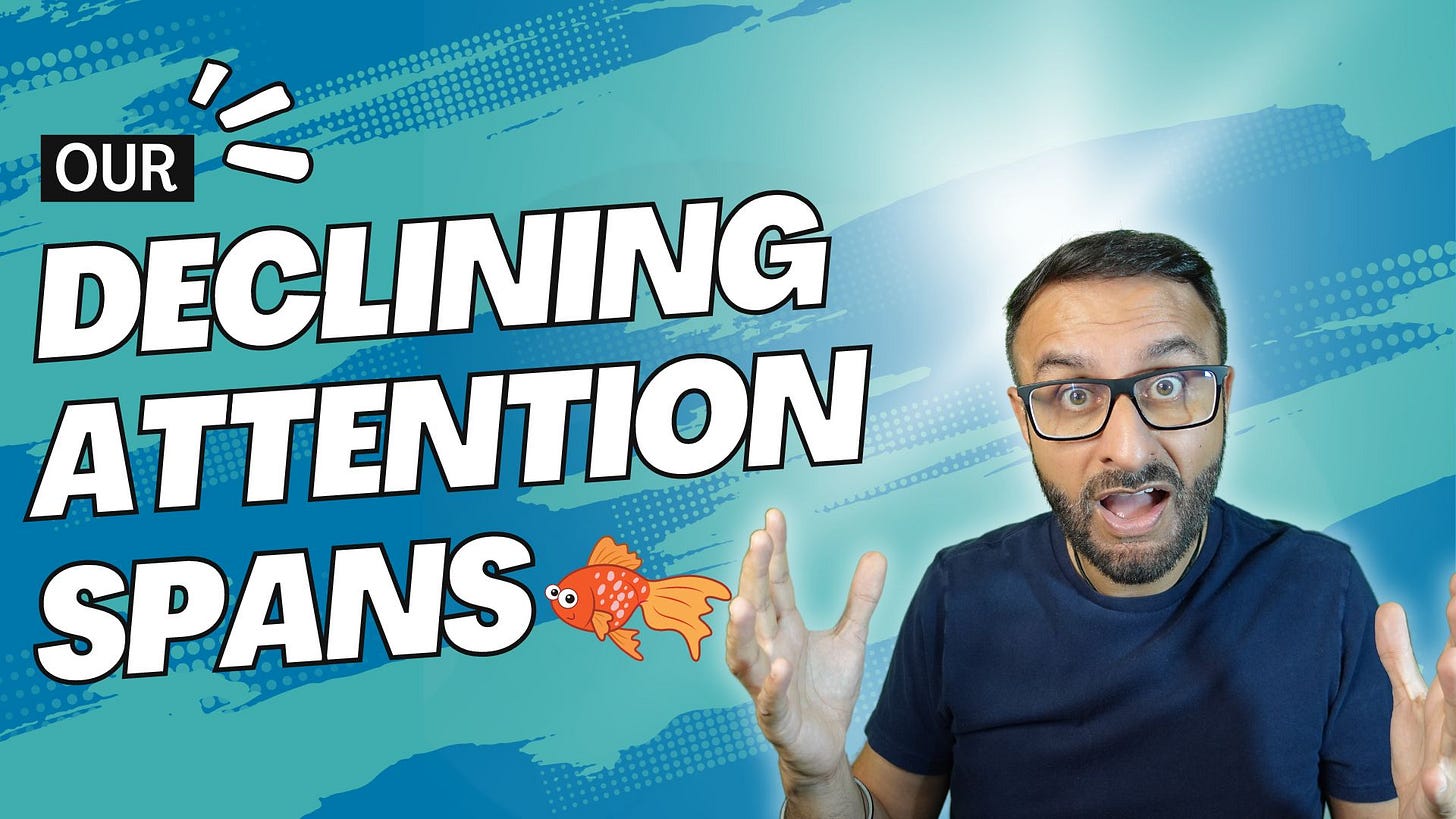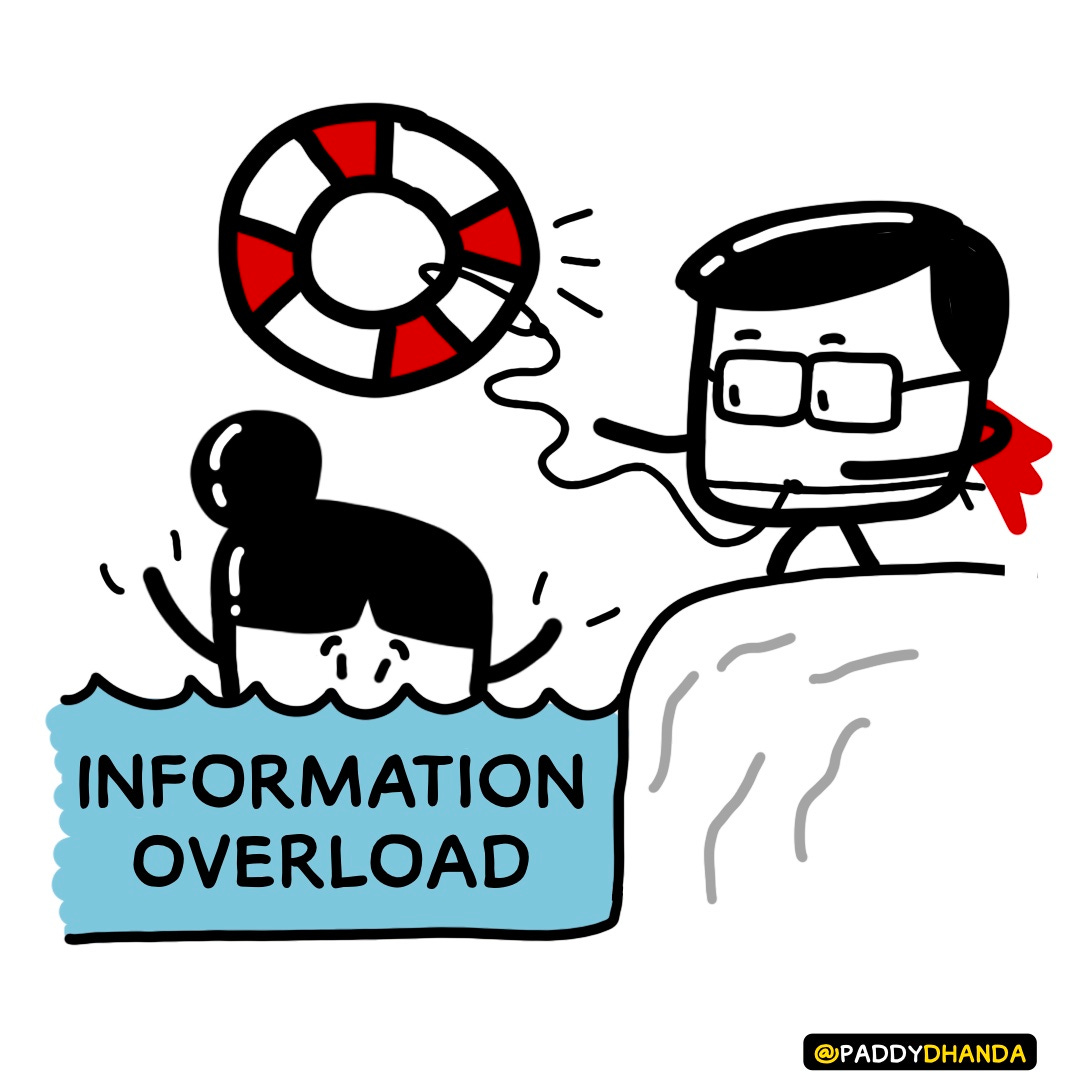Did I tell you we recently bought a puppy? His name is Milo and he’s a Cavapoo. He looks like a real-life teddy bear. I recently enlisted him in puppy classes to get him socialised with other dogs, as well as to train him in some basic commands. The other evening we had to practice the ‘stay’ command. In a room full of other puppies, I had to get him to sit, focus and stay put whilst I walked backwards a few paces. Well, that was the theory 🫢 In reality, he became easily distracted by his surroundings and decided to join one of the other dogs for some puppy romance.
When I came home, I found my kids’ attention span wasn’t that dissimilar to Milo’s. Trying to hold their focus even for a few minutes during a conversation is like catching a fly - it’s impossible.
If you read any productivity book, they'll tell you our attention spans are shrinking. So in this newsletter, I wanted to share a few insights I’ve been researching.
How long do posts trend on social media?
In 2014, researchers studied social media trends on Twitter to see how long people were tweeting about popular topics. The study found that the average time a topic remained in the top 50 most discussed subjects dropped from 17.5 hours in 2013 to 12 hours in 2016. That's an astounding difference of almost a third! Similar results were found when analysing Google search terms and Reddit conversations. The researchers even studied ticket sales for movies and found that people were losing interest faster than they did in the past.
It concluded that it was faster to reach peak popularity in today's world, but people lose interest much faster than they did in the past. That might explain the success of TikTok 🤔
A study of digital books
The researchers wanted to know how long this had been happening. They used similar methods to analyse the millions of digital Google books written over the past 130 years. Modern technology allowed them to compare when new terms and phrases appeared and how long it was before people stopped using them in the different texts.
Back in the early 1900s, words like "plough" and "barn" were commonly used. But as we moved into the digital age, words like "computer" and "internet" began to take over. More recently, words like "selfie" and "hashtag" have become the norm.
They found the results were very similar to their original findings from today's social media. With each decade that goes by, topics come and go faster and faster.
Why are we struggling to focus?
The main reason is the sheer volume of information we're exposed to on a daily basis. We're living in an age of infobesity. We've created more content in the last 10 years than in all the years before that. So we're practically drowning in information, and as a consequence, our brains are struggling to process it all so it becomes tough for us to concentrate on any one thing.
Now think about all of the lengthy meetings you are forced to sit through at work or a recent presentation you’ve delivered. Is your audience more like a puppy (easily distracted) or a dolphin (less distracted)? Thank you for reading and supporting me.
Want more practical tips on how to present like a pro?
In episode 93 of the Superpowers School podcast, I spoke to Andrea Pacini about tips on building our confidence in public speaking and being more engaging.
You can check out the full episode here:
The research in this newsletter was inspired by the book Stolen Focus: Why you can’t pay attention by Johann Hari.





